Ready to take the next step toward a successful certification program? Last month we explored some key strategies to create a body of knowledge (BOK) from the ground up. So, once you have your BOK in hand, what’s next? Building a community of subject matter experts (SMEs) from across the entire scope of your industry to help guide and craft the content.
To ensure the state of the profession is accurately captured, it’s imperative to regularly solicit feedback from SMEs who are typically volunteers from the association’s membership. Here at HC, we’ve worked with countless SMEs over many years, so we have learned a thing or two on how to get the best, and most effective, feedback.
Since these experts are often volunteers, they need to be carefully guided and inspired to capture this expertise. When working with SMEs, the most important thing to do is to establish a sense of gratitude for their contributions early and often. They are busy people who do not need to be doing this after all. Also, because they are the experts, give their opinions sufficient weight while keeping the needs of the project in mind. If you need to limit scope or otherwise say no to a change, explain the reason clearly to all SMEs and indicate what you can do to accommodate their feedback. Let the team come to a consensus and be open to further modifications within the given constraints.
The best SME teams will be well-balanced and represent the profession’s diversity. Here are some common types of SMEs, and our tips on how to get the most out of each type:
The Overachiever
With good SME screening, hopefully you will have at least one go getter on the team. These professionals are eager to advance the profession and will provide ample feedback. To get the most out of these SMEs, work with them to ensure their feedback is specific and directive. Help them understand that the best feedback is directly related to their expertise. This reduces the risk of vague suggestions being misinterpreted or SMEs who focus more on grammar than substance.
The Specialist
In many cases, SMEs will have spent much of their careers in a subset of the profession and will want to ensure their area of specialty is correctly represented and its key points are covered. While this should be encouraged to a degree, they can easily suggest changes that would go into too much depth relative to the balanced needs of the training materials. You will need a writer who can discern the desired scope and provide gentle push back when there is a risk of too much information or scope creep.
The Quiet Type
Some SMEs will not be as outgoing as others in meetings, and some will not provide much feedback to written materials. This is a serious issue because the materials could contain hidden deficiencies or fail to represent the needs of the profession. Silence is not golden in this case. Respectfully but aggressively solicit their feedback in meetings and communications. You may need to interject to give them space with more vocal SMEs, ask for feedback in advance, or use alternative preferred communication modes such as a chat feature.
The Corporate Star
Many SMEs are professionals or business owners who seek to be thought leaders for the profession. Such SMEs often have little free time and even finding good meeting times can be a challenge. Their perspective is invaluable, however, as it represents cutting-edge business practice. Make things as seamless as possible for these SMEs, take copious notes when they are speaking, and come to meetings prepared so they feel they are speaking to someone worthy of their time.
The Academic
SMEs coming from academia could be professors or textbook authors. A balanced mix of practitioners and academics is often desired. Academics understand what students need to know on a given subject and can speak on theoretical, experimental, or ground-breaking developments in the field. Encourage them to speak with authority, but help them also to listen to the corporate practitioners on the team who can share how things are getting done in practice.
The Retiree
Retirees make up the backbone of many SME groups. Older professionals sometimes feel marginalized, so ensure they feel listened to. They have abundant experience and free time and often can share anecdotes or case studies that can bring the materials to life (these are great but sometimes you may need to gently steer a meeting back on track). Most retirees who serve as SMEs tend to stay up to date on developments in their profession and all will have a wealth of information on the timeless principles of the profession. Work to understand their background and get them assignments that get them excited.
Whether you’re looking to start a certification and preparation program from scratch or are looking to enhance a program that’s been in place for years, adhering to these tips can help ensure that you are utilizing the expertise of your subject matter experts to its fullest extent. Have more questions about working with SMEs or about certification preparation in general? Visit us online at HolmesCorp.com or contact us directly at [email protected].







